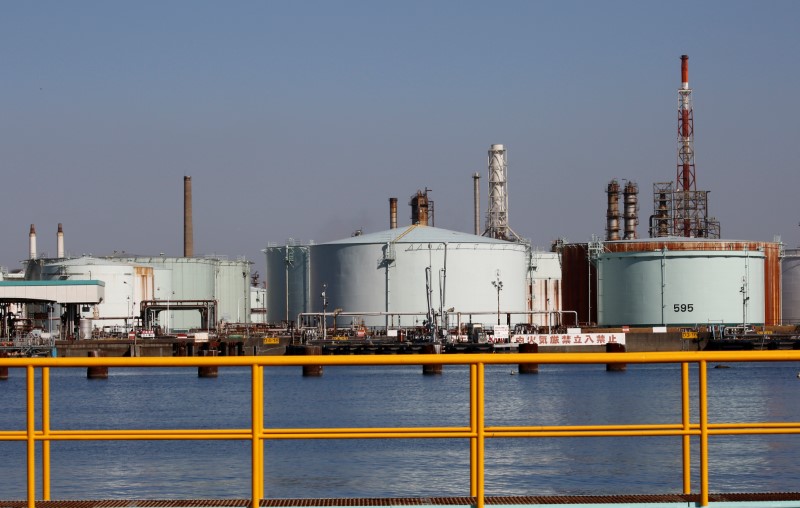Investing.com - Oil prices fell on Monday, amid renewed doubts over the prospect of tariff rollbacks in the protracted U.S.-China trade war, while concerns about oversupply also weighed on sentiment.
U.S. crude was down by 60 cents, or 1% at $56.61 a barrel by 08:32 AM ET (01:32 GMT), having risen 1.9% last week.
Global benchmark Brent crude was down 46 cents, or 0.7%, at $62.05 a barrel. The contract rose 1.3% last week.
Optimism over a possible trade deal has faded since U.S. President Donald Trump said on Friday that he has not agreed to rolling back the U.S. tariffs sought by China.
Trump said there had been incorrect reporting about U.S. willingness to lift tariffs as part of a "phase one" agreement, news of which had boosted markets.
Adding to uncertainty, Trump over the weekend said talks with China were moving along "very nicely", but the U.S. would only make a deal if it was the right deal for America.
The 16-month trade war between the world's two largest economies has acted as a drag on global growth and prompted analysts to lower forecasts for oil demand, raising concerns that a supply glut could develop in 2020.
Figures over the weekend showed that China's producer prices fell the most in more than three years in October, as the manufacturing sector weakened, underlining worries over the economic fallout from the conflict.
Energy traders are also concerned about excess supplies of crude, analysts said.
The oil market outlook for next year may have upside potential, OPEC Secretary-General Mohammad Barkindo said last week, suggesting there is no need to cut output further.
The Organization of the Petroleum Exporting Countries and its allies led by Russia meet in early December. The so-called OPEC+ alliance has since January cut output by 1.2 million barrels per day under a deal set to last until March 2020.
"OPEC must be thrilled to see that U.S. shale oil production is slowing and slowing and it is all happening at a Brent crude oil price of about $60-65/bl (WTI $57/bl ytd av)," said SEB chief commodity analyst Bjarne Schieldrop. "The fear has of course been that you would need to push the WTI price down below $45/bl in order to slow down U.S. shale oil production growth."
--Reuters contributed to this report
